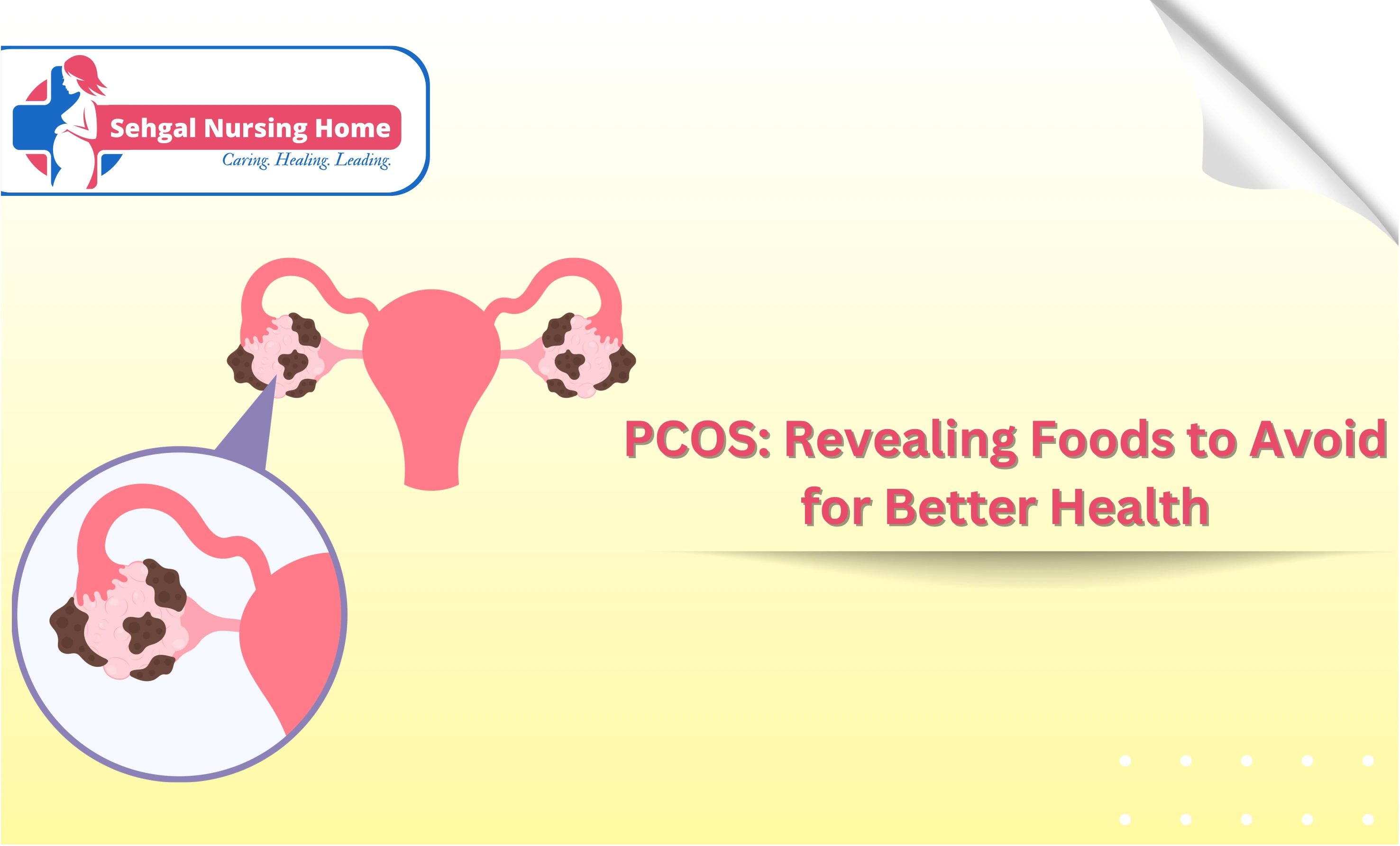
PCOS, or Polycystic Ovary Disease, is a hormonal endocrine disorder affecting a large percent of females in the childbearing part of their age. This condition is characterised by an irregular menstrual cycle, high levels of androgen, and polycystic ovaries, and it has effects on the whole body such as infertility, obesity, and diabetes.
There is no known cure for most of the symptoms associated with PCOS, but the kind of food consumed cannot be overemphasised. This article tries to focus on foods that one should avoid in order to maintain better health in women suffering from PCOS, along with consultation from Sehgal Nursing Home, a premier healthcare clinic exclusively dealing in women’s health issues.
Food choice is one of the most influential determinants of insulin resistance, inflammation, and hormonal in PCOS management. A lot of women who have PCOS also have insulin resistance, so it’s important to avoid foods that would worsen the condition. Here are some foods to avoid:
Glycaemic glycine foods are refined carbohydrates that are found in processed products, which increase the blood sugar levels. Products labelled as refined, including white bread, pastries, candies, pies, cookies, and sweet beverages, should be avoided or minimised. Avoid refined, glycaemic index foods like white rice and instead choose meals such as brown rice and quinoa that slowly release energy.
Coca-Cola, Sprite, and other carbonated drinks contain many calories and are very low in nutrients. It has been reported to render the organisms more insulin resistant, promoting fat deposition.
Fried foods are packed with dangerous fats and calories. It can cause inflammation and aggression of the situation with insulin resistance. Such delicacies as French fries and fried chicken, among others, should not be taken.
Meats such as sausages and frankfurters historically contain enormous amounts of saturated fats and pro-inflammatory chemicals together with preservatives that alter the hormones. Therefore, it’s recommended to choose a lean protein, which can be chicken or fish, for example.
This is a list of high-GI foods: white potatoes and certain types of rice, which can cause sharp increases in blood sugar levels. Low-GI foods such as sweet Maher and legumes should be embraced as they do not cause erratic blood glucose levels.
Dairy products may also worsen PCOS because they contain hormones recommended for those with this condition. Milk contains insulin-like growth factor 1, which increases androgen levels. Depending on one’s daily dietary habits, women with PCOS might experience some relief from symptoms if they eliminated dairy from their diets or switched their milk with almond milk and other nut milk products.
Intake of alcohol may cause hormonal imbalances as well as affect the liver, making it difficult to treat PCOS. The hormones can be corrected by either reducing alcohol use or avoiding it completely.
Caffeine seems to affect hormones and may increase cortisol, which may exacerbate PCOS. Though it is enjoyable, it is recommended that people who consume much coffee avoid it or go for decaffeinated coffee.
That trans fats, which are found in many processed foods, lead to inflammation and insulin resistance. Hence the recommended avoidance of products such as margarine, shortening, or packaged snacks containing these unhealthy fats.
Several reports indicate that soy products may affect hormonal balance since they contain phytoestrogens. However, the efficacy of soy with regard to PCOS is not yet completely understood, and some women prefer to avoid it.
Polycystic ovary syndrome, or PCOS, needs a special approach to food intake to be managed effectively. Specifically, some of such guidelines include refraining from taking foods with high levels of refined carbohydrates and sugars, taking fatty foods in moderation, and avoiding beverages, fried foods, processed meats, any high-GI foods and dairy products, alcohol, caffeine, trans fats, and soy products.
At Sehgal Nursing Home, it was observed that the experts also pay a lot of attention to diet management of PCOS patients. They offer individualised meal plans that accommodate different foods with nutrients and exclude the others that cause harm in inflammatory conditions. There also is a complementary service of counselling, as the nursing home understands how hard it can be for patients to go through the change and seeks to be of emotional support to its patients.
© 2024 Sehgal Nursing Home, Inc. All rights reserved | Website designed by Digital Net India